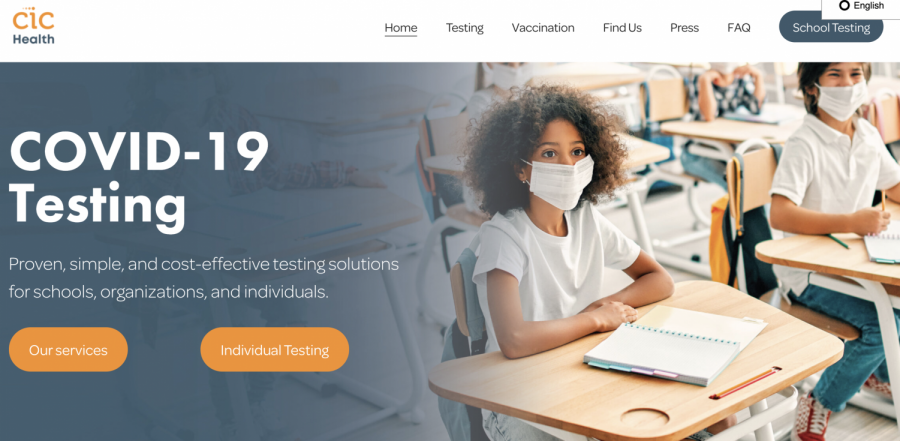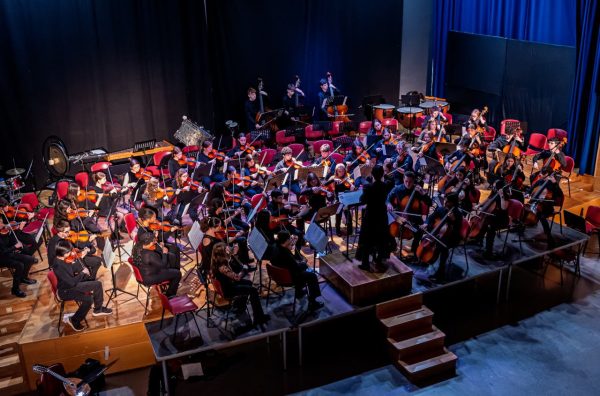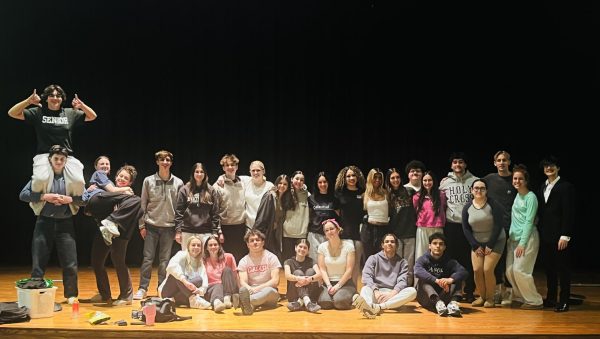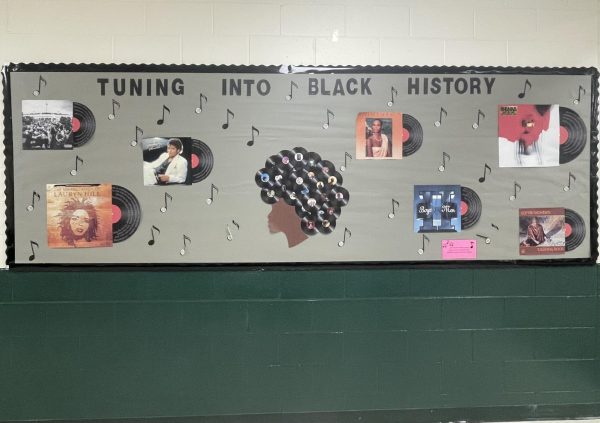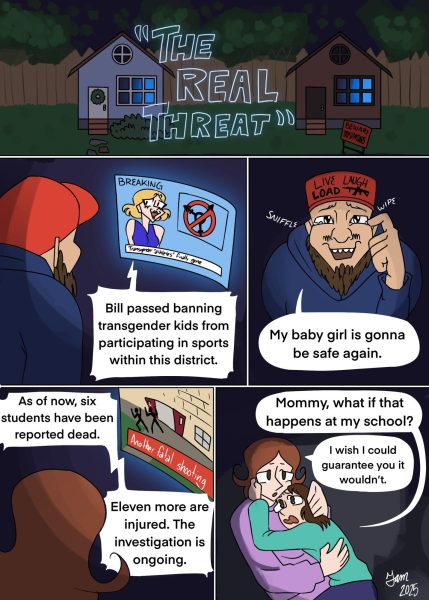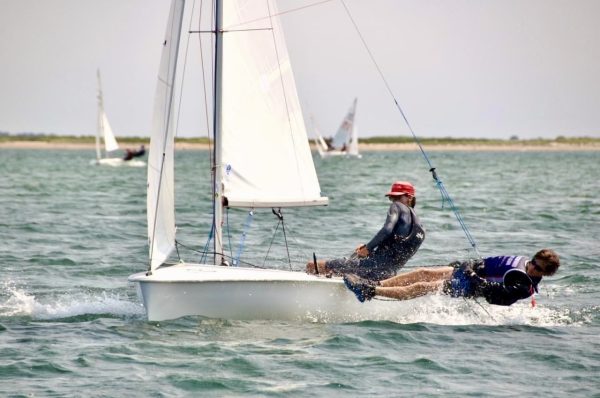Students speak out on COVID protocols
According to the Massachusetts Department of Education website, “Following a competitive procurement process, EOHHS and DESE are making diagnostic and routine (weekly) COVID pooled testing services available at no cost to participating districts and schools through the end of the 2021-22 school year, under a single contract with the testing provider CIC Health.”
Covid protocols are something all DHS students have had to adapt to and learn with for the past year. Information regarding COVID and how to stay safe in school has rapidly changed from one day to the next leading to confusion and misinformation among students. One specific and recent example being the new quarantine procedure and the Test and Stay program.
The Test and Stay program, a new addition to Dartmouth High’s attempt to keep students in school, provides the option for parents to consent for their children to get tested in school. If they’re asymptomatic and test negative, they can remain in school if they were in close contact with another student who tested positive. This new program along with variation in outcomes in student experience has caused a wide spectrum of opinions.
Junior Kendal Adams begins this discussion with her personal experience of testing positive. After getting dismissed for a headache, she was required to get tested before she came back to school. After being tested and finding out she was positive for COVID while being asymptomatic, administration contacted those who had come into close contact with her. “So last week, let me tell you something, I had COVID-19,” she said. “But did I give it to anybody? No, but I had to send a couple of my friends home because they weren’t vaccinated and they came in close contact with me and I felt really, really bad. But I also had a couple of friends who were vaccinated and they got to stay in school.”
Regardless of the fact that on Dartmouth High School’s website there is no mention of varying protocols for vaccinated students versus those who aren’t vaccinated, in this case, it was a deciding factor in quarantining regulation. Adams also said, “It’s just not fair because it’s not entirely their decision to get vaccinated and they have to go home. You miss out on a bunch of school. Are you kidding me? It’s so sad.”
Similarly, Junior Courtney Cabral supports the system of contact tracing, “As far as the testing system goes,” she said, “I believe that chasing people’s seating charts is a very smart idea as well as having them being tested for them to be able to go back to school.” And the idea that a difference in protocols between vaccination statuses isn’t the best way to approach COVID? “However, I believe that just because you’re vaccinated doesn’t mean that you’re 100 percent safe, and all students should have an equal policy in that they should have a negative test regardless to come back to school and need to quarantine if that’s not the case.”
Comparatively, junior Kelcey Almeida, brings up a related matter, surrounding how students who are quarantined will stay up to date with their education. “They have to miss out on quite a few days of school and teachers aren’t really staying on top of students with COVID, meaning sending them work to do at home and giving them the lesson plan for the week,” she said. “Therefore, the students are going to come back and be extremely stressed out and overworked because they have to catch up or they’re going to get bad grades.”
In high school, classes move extremely fast, sometimes covering a unit in the short span of two weeks, missing half of a unit sometimes isn’t an option for students who have other commitments, take higher level classes, or need one-on-one help from their teachers. Almeida suggests a solution. “I think that we should open the Google Meets back up, even if they’re not open for every classroom, only for the students who do have COVID. So they can still be a part of the learning going on at Dartmouth,” she said.
Adversely, many students think the current COVID protocols are appropriate for the current situation at Dartmouth. Junior Class Vice-President Aiden Melo said, “I think the Test and Stay program is good. I think we should have kids in school as long as they’re not sick with COVID. It’s much better than having kids stay at home, not being in class, and not being with teachers or friends. I think it’s a net benefit overall for the school, and it’s still keeping students safe.”
Junior Amanda Zatir gave an in-depth response that builds on why protocols are important and how they can be improved on. “I’ve seen so many students walking around with masks not covering their noses or mouths it’s ridiculous if people aren’t going to wear them there needs to be stricter quarantine protocols,” she said. “Vaccinated or unvaccinated, if you’re close contact, quarantine. I get that missing school is super stressful and difficult, especially for upperclassman, but clearly what the school is doing isn’t working. What I am saying is that it’s imperative for the school to tell us exactly what’s happening, and implore the students to protect themselves and help protect the community through obeying the rules in place.”
Junior Piper Harrison agrees, suggesting that the Test and Stay program favors students by bypassing possible stress from having to stay home as well as keeping unvaccinated people safe from infection. “With unvaccinated people, I think it makes sense to have them stay quarantined because they’re at a higher risk and it’s just it’s less safe.”
Of course, the main focus of all students is safety, but in addition to that, extracurricular activities have been immensely affected by COVID protocols, especially the marching band.
Freshman J.T. Appleyard speaks on how participating in the marching band has changed over the last year. “Last year was worse, but this year isn’t as bad,” he said, “but it’s still different because it’s like, okay, you’re supposed to be three feet apart. You have to have masks on if you’re near people who don’t play your instrument,” they said. Not only have COVID protocols determined how we interact with each other, it’s also determined how we interact with our hobbies.
On the upside, Appleyard said, “The show got cut a third of the length it was supposed to be last year. This year it’s the actual length, which is like, hallelujah, great. It’s an actual show. So that was a big change.”
While Zatir expresses the gratitude she has for the efforts DHS has taken, “I completely understand that the staff and administrators are under extreme stress, no doubt there. And I’m super thankful for what the teachers and higher-ups are doing.”

